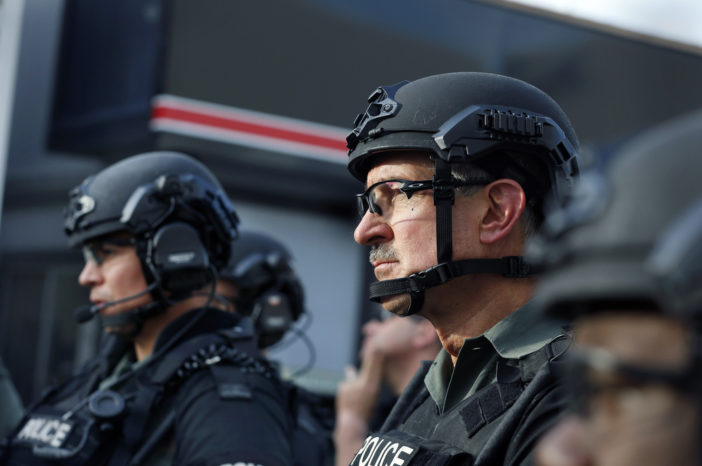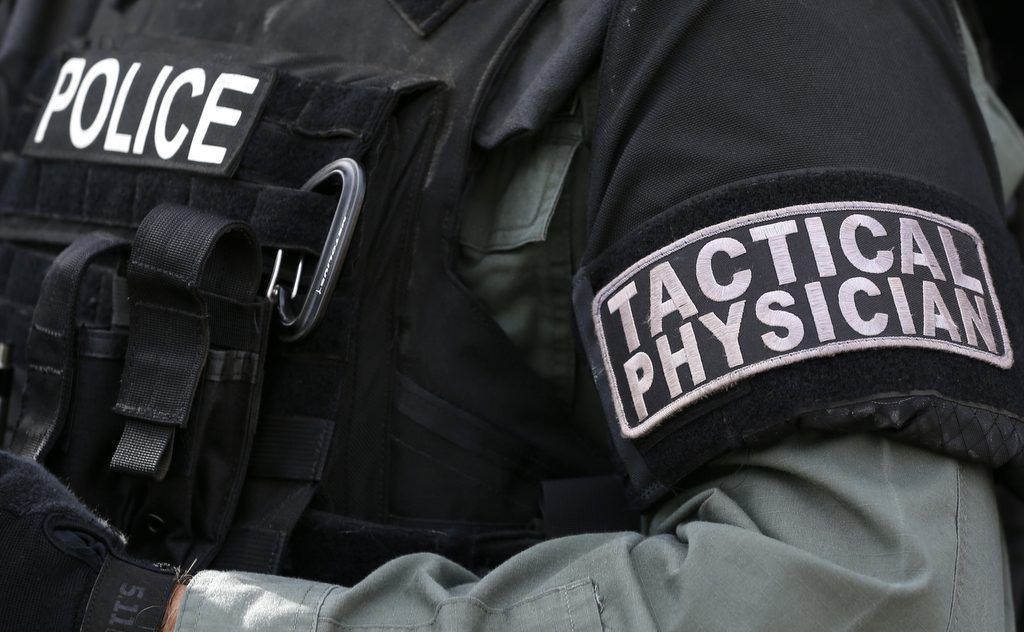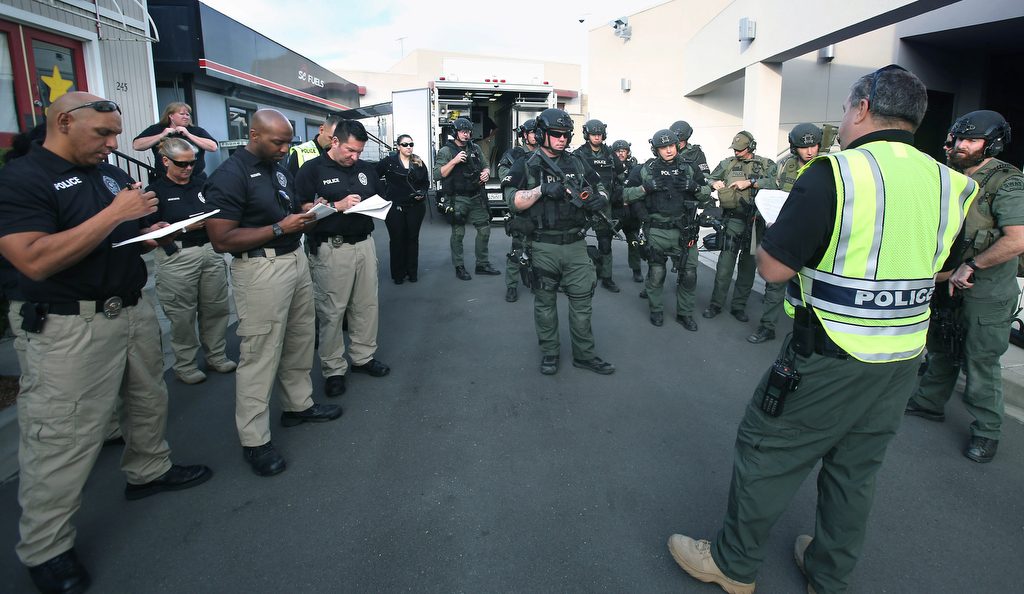It’s a hostage situation.
A man high on meth shot his father in the leg and refuses to let his father leave the house. The doors are barricaded shut, and the man is on the phone with crisis team negotiators from the Orange PD’s SWAT (Special Weapons and Tactics) team.
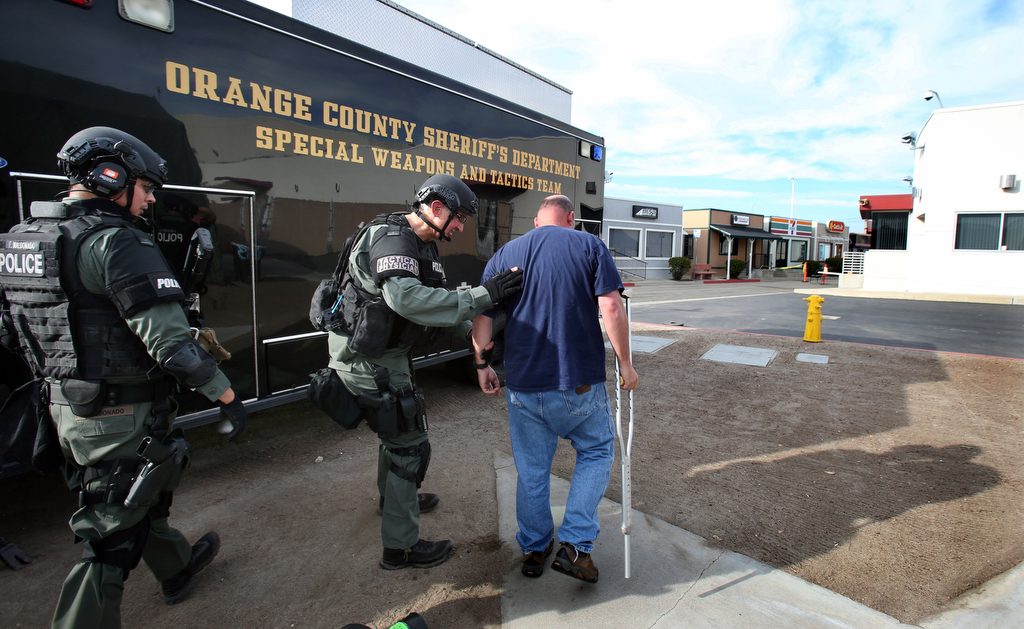
ER doctor George Baskevitch gives aid to Reserve Officer Ken Adams who was one of the hostages during an Orange Police Department SWAT training exercise.
Photo by Christine Cotter/Behind the Badge
Officers are stationed outside, behind an Orange County Sheriff’s Department van, waiting.
Among them is Dr. George Baskevitch, an Orange PD reserve officer and emergency room doctor, who is carefully analyzing the situation to give real-time medical tips to the Orange PD — tips that play into their negotiations.
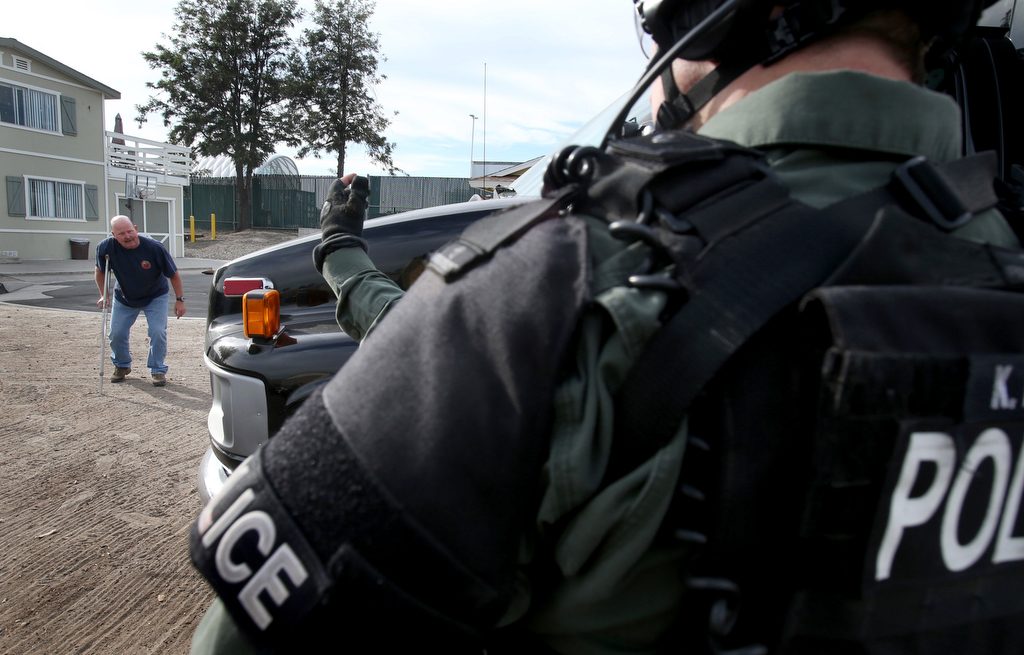
Reserve officer Ken Adams approaches Orange Police Department SWAT team member Kurt Lawson during a simulation of a hostage situation.
Photo by Christine Cotter/Behind the Badge
A gunshot wound in the leg could be life-threatening, but Baskevitch can see through an upstairs window that the man is walking without obvious discomfort. SWAT could enter the house if he needed immediate medical attention, but this time, the team waits for negotiators to convince them to surrender.
“He’s our lifesaver,” Det. Kurt Lawson said of Baskevitch. “Our guardian angel.”
Scenarios such as this are a regular part of the Orange PD SWAT team’s quarterly training. In this exercise, the hostage and his son are volunteer actors and the house is part of the Orange County Sheriff’s Department training facility in Orange.
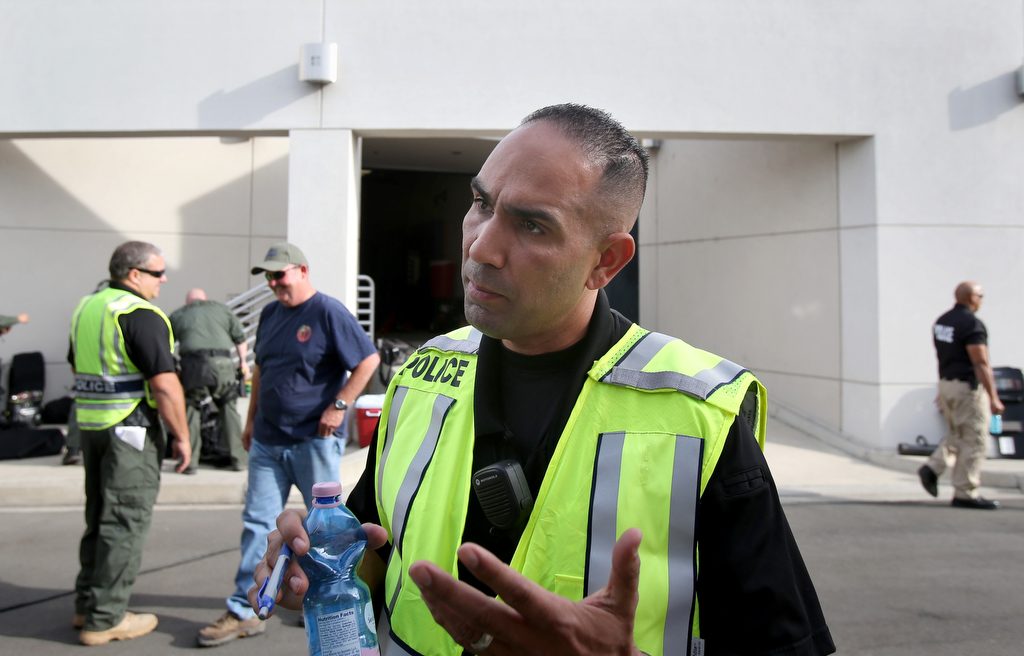
The Orange Police Department’s Lt. Mike Monjaraz works with reserve Dr. George Baskevitch.
Photo by Christine Cotter/Behind the Badge
Having a doctor on hand is a huge bonus for the Orange PD. Not only does Baskevitch provide medical insight during police calls, he can care for the officers and ensure their needs are met on long shifts or if they are injured.
“His presence provides us with the knowledge that at any moment, if something goes wrong… that we’ll have immediate care on them and the best opportunity to save their lives,” Sgt. Dave Natividad said.
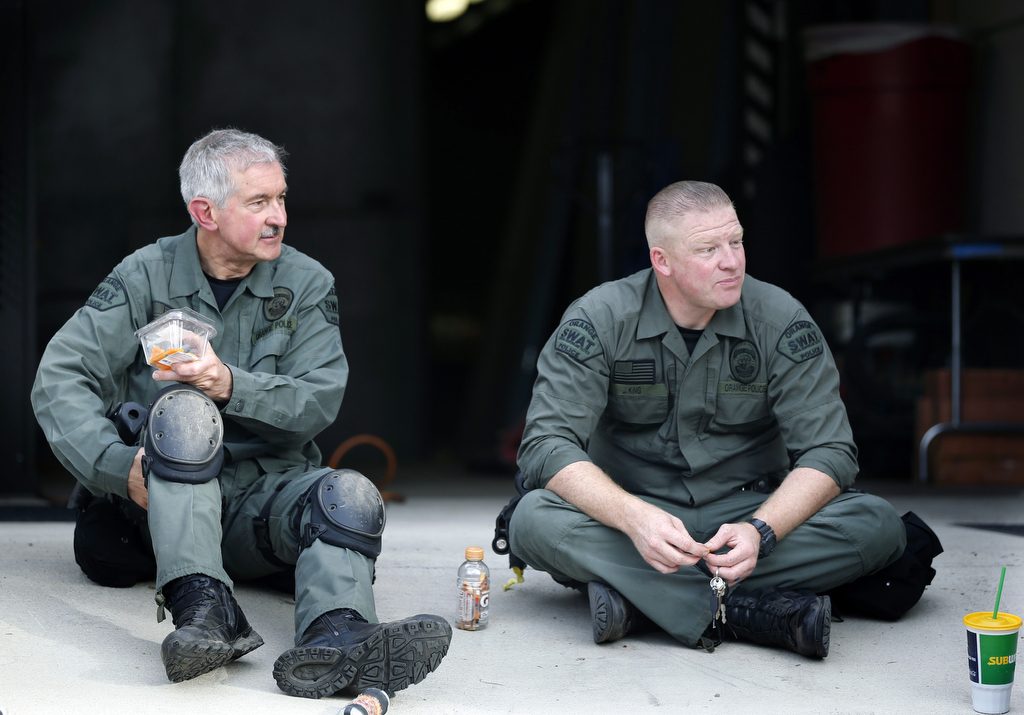
ER doctor George Baskevitch, left, and J. King take a break after an Orange Police Department SWAT training exercise.
Photo by Christine Cotter/Behind the Badge
Baskevitch, a Laguna Beach resident, began volunteering with Orange PD seven years ago. The 60-year-old is one of about five medical professionals working with law enforcement agencies in Orange County.
“It’s rewarding. It’s a breath of fresh air,” Baskevitch said. “It kind of invigorated me.”
Baskevitch chose to become a reserve officer after two years working with Orange PD. He went through the 13-week academy while working full-time in the emergency room. He’s also a board member of West Anaheim Medical Center and is medical director of the emergency room.
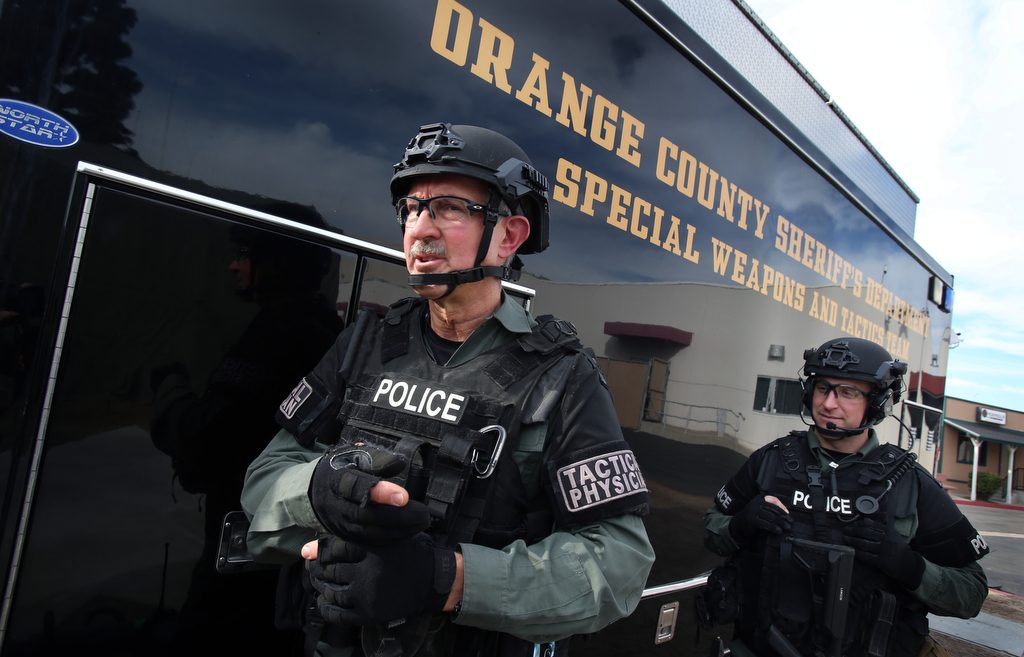
ER doctor George Baskevitch keeps watch on a hostage situation during an Orange Police Department SWAT training exercise.
Photo by Christine Cotter/Behind the Badge
“You can’t really do this job unless you’re a sworn officer,” he said. “You’re either in or you’re out. That became obvious after doing it for a little while. You learn everything in the academy. It’s a completely different world. You have no idea as a civilian what it entails.”
The hostage training scenario is similar to Baskevitch’s last call with Orange PD SWAT, when an intoxicated man with a history of mental illness barricaded himself in an apartment.
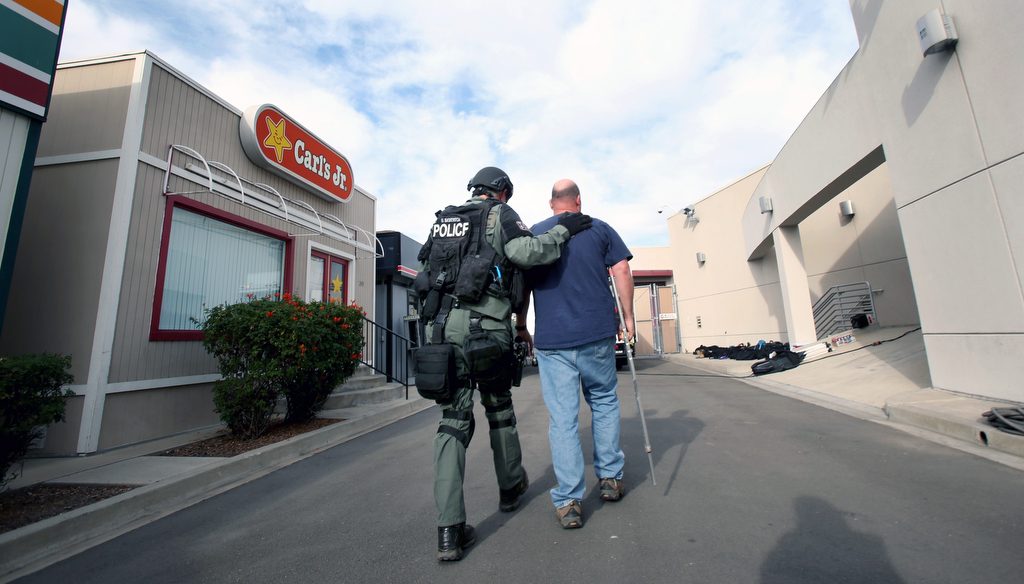
Dr. George Baskevitch gives aid to Reserve Officer Ken Adams who played the part of a hostage during an Orange Police Department SWAT training exercise.
Photo by Christine Cotter/Behind the Badge
That day, Baskevitch was heading home after a long emergency room shift. He swapped his scrubs for his SWAT gear, and joined the Orange PD until the man surrendered at about 6:30 a.m.
Though the man had been pepper-sprayed, Tasered, and shot at with rubber bullets, “his heart rate was 64 and he had a normal respiratory rate,” Baskevitch said. “He was quite at peace. It was bizarre.”
In addition, Baskevitch cared for the officers that night. It was cold, and the officers hadn’t eaten since they arrived. Baskevitch arranged for food and hot coffee.
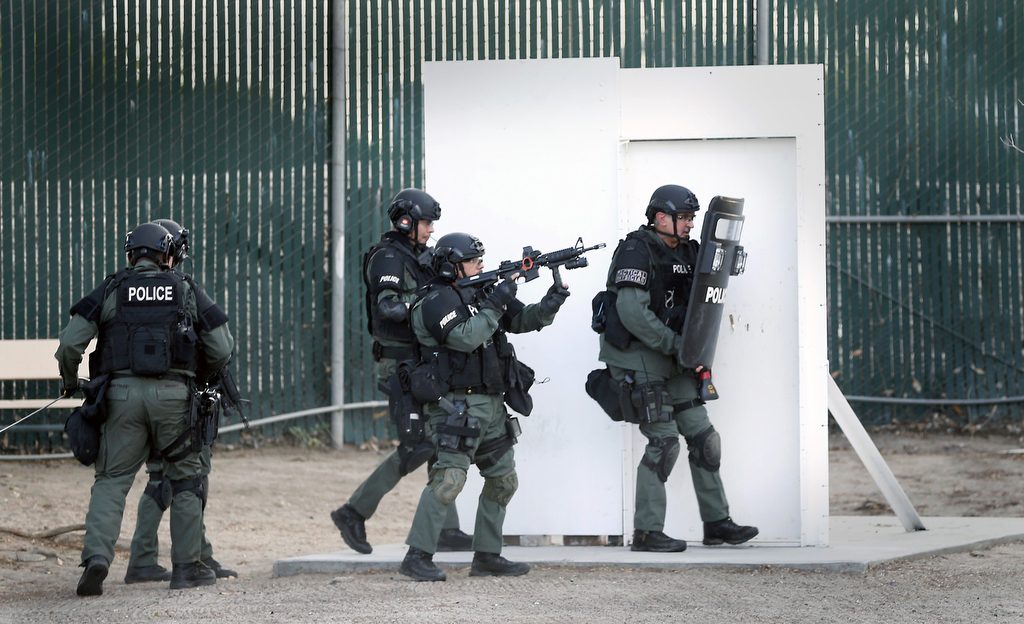
ER doctor George Baskevitch, right, carries a ballistic shield during a drill with the Orange Police Department SWAT team.
Photo by Christine Cotter/Behind the Badge
“Here we’re caught up in the operation, and moving forward, and trying to resolve it,” Lt. Mike Monjaraz said. “He says, ‘Hey, its cold out here. Your guys have been out there for six hours now. You should probably get them some food, some calorie intake.’ That way, they can continue to operate and function at 110 percent, which is the expectation.”
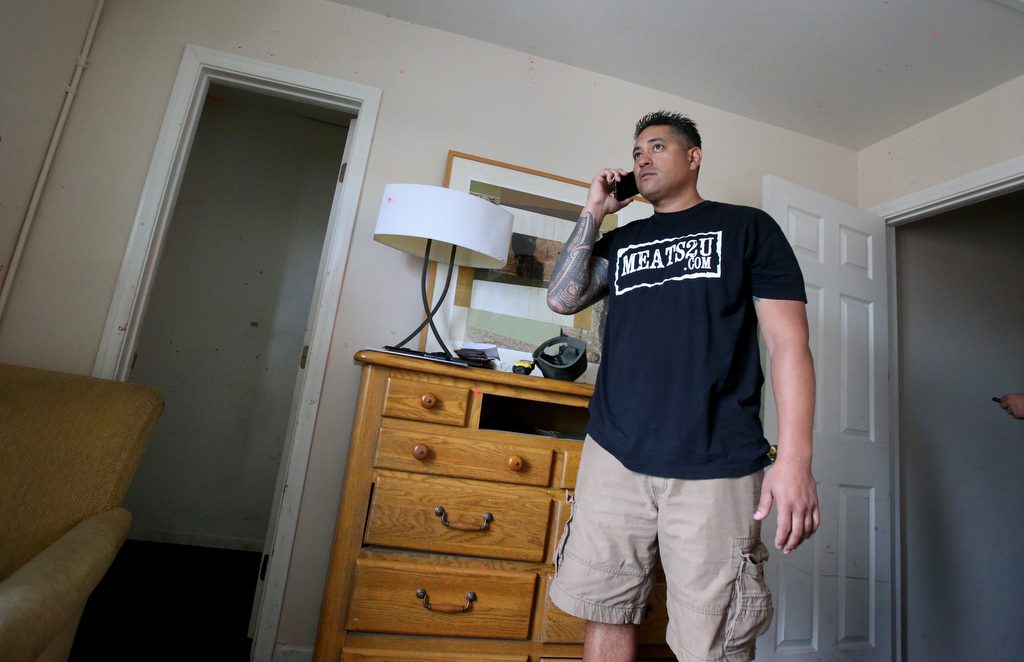
Tony Esera communicates with SWAT officers during an Orange Police Department training session.
Photo by Christine Cotter/Behind the Badge
Baskevitch has a great aptitude for the tactical side of things, not just the medical aspect, Natividad said.
“He’s got a great personality,” Natividad said. “He fits in well with the team.”
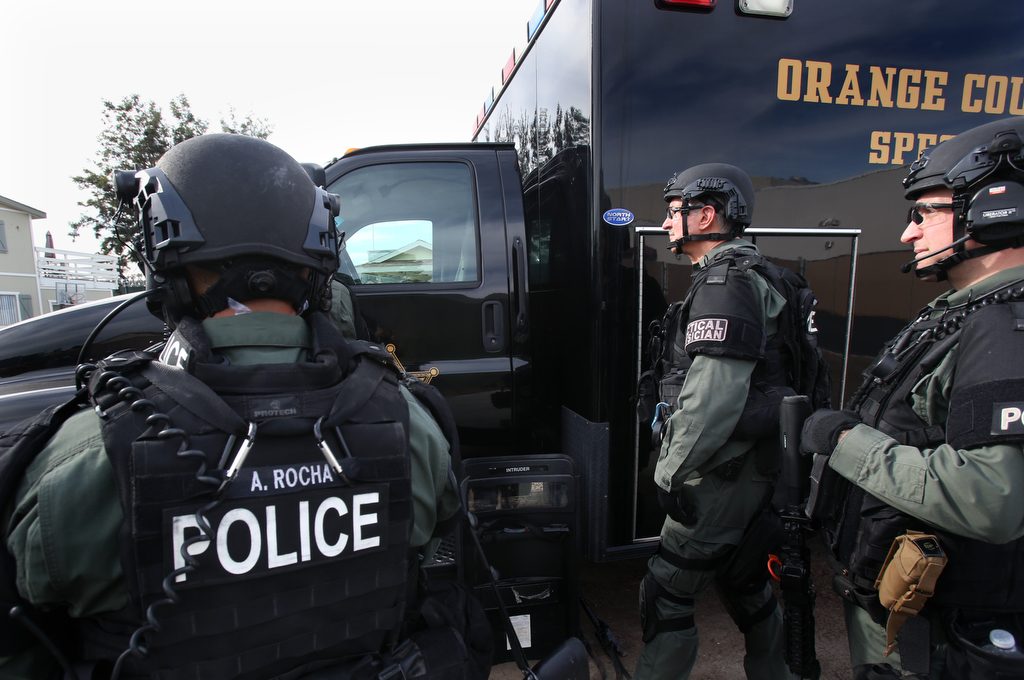
George Baskevitch, center, keeps watch during a SWAT training exercise with Orange Police Department.
Photo by Christine Cotter/Behind the Badge
 Behind the Badge
Behind the Badge
